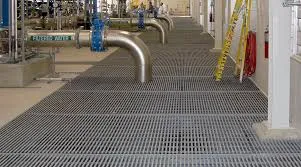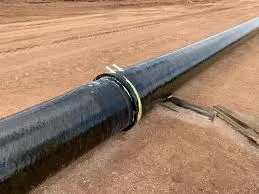
-
 Afrikaans
Afrikaans -
 Albanian
Albanian -
 Amharic
Amharic -
 Arabic
Arabic -
 Armenian
Armenian -
 Azerbaijani
Azerbaijani -
 Basque
Basque -
 Belarusian
Belarusian -
 Bengali
Bengali -
 Bosnian
Bosnian -
 Bulgarian
Bulgarian -
 Catalan
Catalan -
 Cebuano
Cebuano -
 China
China -
 China (Taiwan)
China (Taiwan) -
 Corsican
Corsican -
 Croatian
Croatian -
 Czech
Czech -
 Danish
Danish -
 Dutch
Dutch -
 English
English -
 Esperanto
Esperanto -
 Estonian
Estonian -
 Finnish
Finnish -
 French
French -
 Frisian
Frisian -
 Galician
Galician -
 Georgian
Georgian -
 German
German -
 Greek
Greek -
 Gujarati
Gujarati -
 Haitian Creole
Haitian Creole -
 hausa
hausa -
 hawaiian
hawaiian -
 Hebrew
Hebrew -
 Hindi
Hindi -
 Miao
Miao -
 Hungarian
Hungarian -
 Icelandic
Icelandic -
 igbo
igbo -
 Indonesian
Indonesian -
 irish
irish -
 Italian
Italian -
 Japanese
Japanese -
 Javanese
Javanese -
 Kannada
Kannada -
 kazakh
kazakh -
 Khmer
Khmer -
 Rwandese
Rwandese -
 Korean
Korean -
 Kurdish
Kurdish -
 Kyrgyz
Kyrgyz -
 Lao
Lao -
 Latin
Latin -
 Latvian
Latvian -
 Lithuanian
Lithuanian -
 Luxembourgish
Luxembourgish -
 Macedonian
Macedonian -
 Malgashi
Malgashi -
 Malay
Malay -
 Malayalam
Malayalam -
 Maltese
Maltese -
 Maori
Maori -
 Marathi
Marathi -
 Mongolian
Mongolian -
 Myanmar
Myanmar -
 Nepali
Nepali -
 Norwegian
Norwegian -
 Norwegian
Norwegian -
 Occitan
Occitan -
 Pashto
Pashto -
 Persian
Persian -
 Polish
Polish -
 Portuguese
Portuguese -
 Punjabi
Punjabi -
 Romanian
Romanian -
 Russian
Russian -
 Samoan
Samoan -
 Scottish Gaelic
Scottish Gaelic -
 Serbian
Serbian -
 Sesotho
Sesotho -
 Shona
Shona -
 Sindhi
Sindhi -
 Sinhala
Sinhala -
 Slovak
Slovak -
 Slovenian
Slovenian -
 Somali
Somali -
 Spanish
Spanish -
 Sundanese
Sundanese -
 Swahili
Swahili -
 Swedish
Swedish -
 Tagalog
Tagalog -
 Tajik
Tajik -
 Tamil
Tamil -
 Tatar
Tatar -
 Telugu
Telugu -
 Thai
Thai -
 Turkish
Turkish -
 Turkmen
Turkmen -
 Ukrainian
Ukrainian -
 Urdu
Urdu -
 Uighur
Uighur -
 Uzbek
Uzbek -
 Vietnamese
Vietnamese -
 Welsh
Welsh -
 Bantu
Bantu -
 Yiddish
Yiddish -
 Yoruba
Yoruba -
 Zulu
Zulu
Mar . 06, 2025 17:47
Back to list
Ladders & Handrails
In the realm of modern industrial manufacturing, the fiberglass winding machine stands out as a pivotal tool for numerous industries. With the growing demand for lightweight yet robust materials, fiberglass has become a cornerstone in sectors ranging from construction to aerospace. The precision and efficiency of a fiberglass winding machine ensure the optimal performance and quality of fiberglass products. This article delves into the intricate functionalities, advantages, and selection criteria of fiberglass winding machines, presenting an authoritative guide for industry professionals seeking to enhance their production capabilities.
Selecting the right fiberglass winding machine is crucial for optimizing production and ensuring long-term reliability. Key considerations include the machine's size and capacity, compatibility with different materials, and the precision of its control systems. Advanced models offer features such as real-time monitoring, automated fault detection, and user-friendly interfaces, which enhance operational efficiency and reduce the risk of errors. By investing in a high-quality machine, companies can ensure consistent performance and return on investment. However, the deployment of fiberglass winding machines is not without challenges. Skilled operation and regular maintenance are essential to ensure optimal performance and longevity. Programs of continuous training for operators and technicians are recommended to keep up with technological advancements and maintenance practices. Building a robust maintenance schedule and equipping the team with the necessary skill set can prevent downtimes and extend the lifecycle of the machinery. Trustworthiness in the context of fiberglass winding machines lies in the reputation and reliability of the manufacturers. Choosing machines from established providers known for quality engineering and comprehensive support services is vital. A reliable supplier not only guarantees the supply of high-caliber machinery but also provides the necessary technical support, training, and spare parts services, ensuring seamless operations throughout the machine's lifespan. Fiberglass winding machines represent a fusion of mechanical ingenuity and cutting-edge technology. Their role in the industrial sector is undeniable, offering unparalleled precision, efficiency, and adaptability. As industries continue to push the boundaries of innovation and sustainability, the demand for high-quality fiberglass products is set to rise. Equipped with the right winding machines, companies are poised to meet this demand with confidence, ensuring product excellence and market leadership. In conclusion, fiberglass winding machines are indispensable in the modern manufacturing landscape. Their ability to deliver high-quality, cost-effective, and versatile solutions makes them a cornerstone in the production of advanced composite materials. By understanding the functionalities, advantages, and selection criteria, industry professionals can make informed decisions, ensuring their operations remain at the forefront of technological progress and market demands.


Selecting the right fiberglass winding machine is crucial for optimizing production and ensuring long-term reliability. Key considerations include the machine's size and capacity, compatibility with different materials, and the precision of its control systems. Advanced models offer features such as real-time monitoring, automated fault detection, and user-friendly interfaces, which enhance operational efficiency and reduce the risk of errors. By investing in a high-quality machine, companies can ensure consistent performance and return on investment. However, the deployment of fiberglass winding machines is not without challenges. Skilled operation and regular maintenance are essential to ensure optimal performance and longevity. Programs of continuous training for operators and technicians are recommended to keep up with technological advancements and maintenance practices. Building a robust maintenance schedule and equipping the team with the necessary skill set can prevent downtimes and extend the lifecycle of the machinery. Trustworthiness in the context of fiberglass winding machines lies in the reputation and reliability of the manufacturers. Choosing machines from established providers known for quality engineering and comprehensive support services is vital. A reliable supplier not only guarantees the supply of high-caliber machinery but also provides the necessary technical support, training, and spare parts services, ensuring seamless operations throughout the machine's lifespan. Fiberglass winding machines represent a fusion of mechanical ingenuity and cutting-edge technology. Their role in the industrial sector is undeniable, offering unparalleled precision, efficiency, and adaptability. As industries continue to push the boundaries of innovation and sustainability, the demand for high-quality fiberglass products is set to rise. Equipped with the right winding machines, companies are poised to meet this demand with confidence, ensuring product excellence and market leadership. In conclusion, fiberglass winding machines are indispensable in the modern manufacturing landscape. Their ability to deliver high-quality, cost-effective, and versatile solutions makes them a cornerstone in the production of advanced composite materials. By understanding the functionalities, advantages, and selection criteria, industry professionals can make informed decisions, ensuring their operations remain at the forefront of technological progress and market demands.
Related Products









